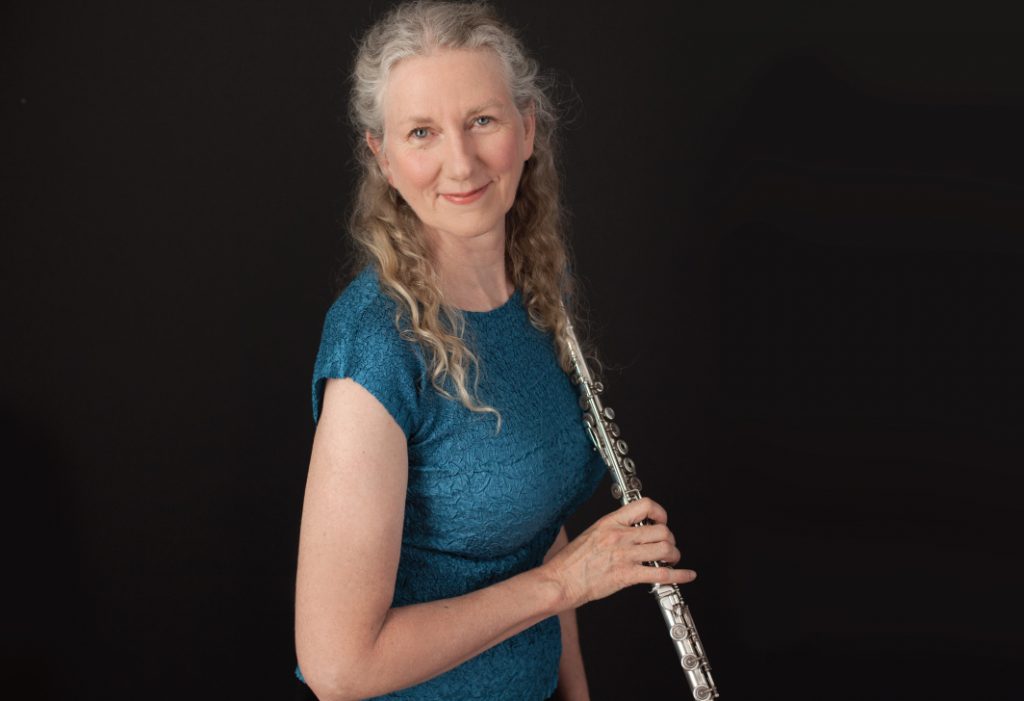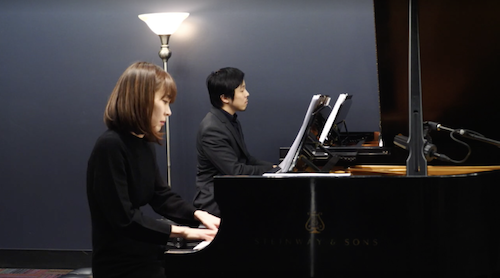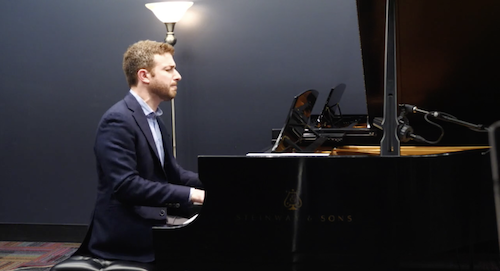by Daniel Hathaway, Jarrett Hoffman, and Mike Telin
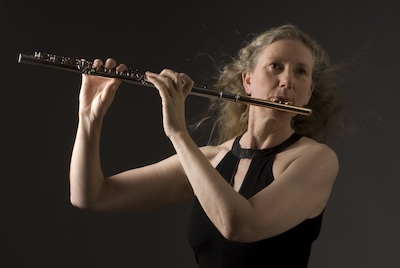
On Thursday, March 19, two area institutions presented the first of what will likely be many live-streamed concerts. At 4:30 pm in Oberlin Conservatory’s Stull Recital Hall, Flute Professor Alexa Still and Faculty Collaborative Pianist Evan Hines presented a program of works by Koechlin, Chopin, Coleman, and Debussy.
On the same day at 7:30 pm in Steinway Piano Gallery Cleveland, Piano Cleveland presented the first of its Quarantine Concerts. Pianist Yaron Kohlberg played selections by Schumann and Grieg, and duo pianists Irwin Shung and Natsumi Shibagaki played works by Bach, Rachmaninoff, and Gershwin.
Remotely streamed concerts raise an interesting question for journalists: is it possible to critically evaluate live performances when you’re not in the same room? Three of ClevelandClassical’s writers attempted to answer that and other questions about covering virtual performances.
Mike Telin: While I enjoyed both performances very much, I think that because of the times we’re in right now, it just felt like the wrong thing to do. The performers were giving something to the community, and I just wanted to be part of that community.
I had a great conversation with Oberlin Conservatory Dean Bill Quillen about the subject of community. He emphasized that with students spread around the country and the world, anything that can bring a sense of belonging into people’s lives right now is a good thing. And that’s where I am at the moment. Bill also told me that his office has received many emails from students, faculty, alumni, and the general public saying how much it helped to create a sense of community.
Jarrett Hoffman: Rather than take on the role of the shrewd listener, for now at least, it feels more appropriate to 1) show gratitude to the artists for trying to fill the musical void during a precarious time in their lives, and 2) have a conversation with the world about what exactly it’s like to experience concerts that have no audiences.
Dan Hathaway: What’s complicated is separating the performance from the means of delivery. Do you critique both? Also, when you’re watching a streamed concert, your focus is being determined by someone else. But the longer this situation goes on, the more critics will be asked to write about live-streamed events. We’ll have to come to terms with that.
MT: Dan brings up a good point — both concerts had some small technological flaws. Another consideration is the aesthetic: is the stage decorated or not, and how is the spoken commentary delivered? Oberlin took a more DIY approach — Stull is equipped to stream recitals, whereas Piano Cleveland created a salon atmosphere at the Steinway Gallery. Two different approaches that I felt worked well.
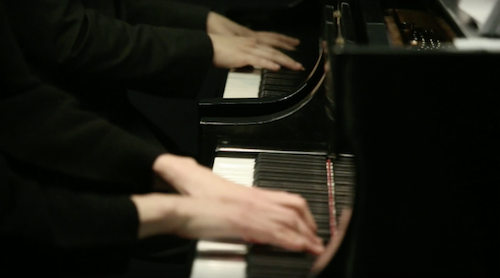
DH: What about program notes (or the lack thereof)? Or a list of pieces being performed — with movement titles? I missed having basic information about what was being performed.
JH: In the case of Piano Cleveland, the players announced their selections from the stage — both before and after each performance, which to me felt like enough. These were short pieces, so if you were just tuning in, you didn’t have to wait long to find out what they were. Any extra information provided would be a bonus.
MT: Alexa did announce the names of the pieces. But since the Coleman was a premiere, and no one knows the Koechlin, it would have been nice to have movement titles and program notes. Alexa later told me that because Valerie Coleman’s works have a strong programmatic element to them, she also felt that those details would have been helpful for the audience. Hopefully organizations will figure out how to solve that problem.
DH: What about the absence of an audience? The lack of audience response is one of the strangest aspects of “private” streamed performances. I’m not advocating adding the equivalent of a laugh track, but maybe technology could allow for assembling a virtual live audience (ZOOM, anyone?)
JH: That’s an interesting thought. But when people are part of a physical audience, they’re affected by social pressures. I would worry that, with the anonymity of the internet, you might get trolls who would sabotage the concert (a different kind than the “March of the Trolls” that Yaron Kohlberg played on Thursday). Maybe that virtual audience could be by invite only?
MT: I think playing to an audience of three or four people would be strange, but a great opportunity for the video and sound engineers to experience some incredible private concerts. As Bill Quillen put it: “At first it felt odd being one of only four people in the room, but once you begin to lose yourself in the music, you forget all about that.”
JH: How did you feel about the repertoire? I thought New Yorker critic Alex Ross put it well in an article he wrote not long after 9/11: “I’ve found that my musical appetites are more limited than usual…” Recently, what I’ve wanted from music is comfort — something that’s thoughtful, nostalgic, or fun and light — even if that’s odd to admit as a critic.
DH: I wrote about Oberlin’s streamed production of Così fan tutte, so that was predetermined, but when you’re choosing music to respond to a crisis, not everything has to be deeply meaningful. Maybe a frothy Mozart comedy — fun and light, as Jarrett says — sometimes provides the best sort of respite.
Mike Telin caught up with Alexa Still by telephone to talk about her program with Evan Hines, which included Charles Koechlin’s Les Chants de Nectaire for solo flute, Chopin’s Nocturne No. 2 in F-sharp, Op. 15, the Oberlin premiere of Valerie Coleman’s Amazonia, and an arrangement of Debussy’s La fille aux cheveux de lin.
He began the conversation by asking her why she told the online audience that it was difficult for her to concentrate.
Alexa Still: I just find that it’s hard to focus because there’s too much else that I’m thinking about. Normally I can compartmentalize, but I think it’s just such a weird time, and it’s hard to leave that behind. It was weird to perform because I didn’t really feel like I was on the top of my game — I wasn’t 100% thinking about what I was doing, which is where I prefer to be.
When you look out the door it’s like a ghost town, and of course the Conservatory is like a mausoleum, so it’s kind of hard to not notice that there’s a gross absence of people. I guess that’s something that we will get used to, but I hope not.
MT: You also mentioned that because of the circumstances, it was difficult to choose the repertoire.
AS: Evan and I had been rehearsing the Coleman for some time, but when cellist Mihai Tetel couldn’t come, I took a bunch of other music to Evan. We played through some very beautiful pieces, but some of them were too sad or too emotionally intense, and I felt like those were just the wrong things to be playing.
You know when you’re in a traumatic situation and someone expresses empathy for you, how that is the hardest time to control your emotions? Every time we played something that was in my words beautiful, we both said, “No, we can’t play that one.” I guess that will change as we get a little bit more used to being like this.
MT: I understand from Bill Quillen that there were a total of four people, including you and Evan, in the Hall: was that difficult to adjust to?
AS: Oh yes, I think that was the hardest thing. When there’s an audience I’m very much thinking about communicating to them. Intellectually I knew there was an audience, but I couldn’t see them. Yes, Bill was there, but I didn’t want to stare him down — that wouldn’t have been fair. When you have an audience, you’re looking for a response. To not have that, but to know it’s kind of there, is weird.
MT: I like Valerie Coleman’s music very much, but I had never heard of Charles Koechlin, let alone his Les Chants de Nectaire.
AS: Nobody has — it’s seriously obscure flute music.
MT: It’s a very long piece that you recorded in the late 1990s.
AS: Yes, that was in a previous lifetime. The piece was originally a set of 96 solo flute pieces of which 47 were published in 3 books by Billaudot. I recorded only 45 of them, basically because they didn’t all fit on a CD.
MT: How did you discover them?
AS: I came across them back in the mid-‘80s on one of my common search-out-music- while-on-tour expeditions. They were buried in a very small music store in Boston. The six that I played were the ones that I decided I liked.
The selections Alexa Still performed were:
Gaîté du matin ensoleillé (“Gaeity of a sunlit morning”) from Book I: Sans Titre (“Without Title”)
Tityre remercie les Dieux (“Tityre thanks the Gods”) from Book III: Prières, cortèges et danses pour les dieux familiers (“Prayers, processions and dances for familiar gods”)
Le Chevrier (“The goatherd”) from Book II: Dans la forêt antique (“In the ancient forest”)
Les Vrilles de la Vigne (“The Tendrils of the Vine”) from Book I: Sans Titre (“Without Title”)
Luminère – Modération – Équilibre (“Light – Moderation – Equilibrium”) from Book I: Sans Titre (“Without Title”)
Le Rire vainqueur (“The Conquering Laughter”) from Book I: Sans Titre (“Without Title”)
Jarrett Hoffman reached pianist and Piano Cleveland President Yaron Kohlberg to talk about his experience in the first Quarantine Concert. Kohlberg performed selections from Schumann’s Op. 12 Fantasiestücke and Grieg’s Lyric Pieces. And piano duo Irwin Shung and Natsumi Shibagaki played Shung’s arrangement of Bach’s Sheep may safely graze, movements from Rachmaninoff’s Op. 11 Morceaux, and Gershwin’s transcription of his Cuban Overture. Adhering to social distancing, the duo played their entire program on two pianos — even the four-hand Rachmaninoff and Gershwin.
Jarrett Hoffman: First of all, congratulations on the performance. You mentioned during the concert that you hoped it would give people a sense of familiarity to be able to listen to live music on a Thursday evening. Did that also apply to you as a performer — did it feel good to be back onstage?
Yaron Kohlberg: Yes, of course. And the reaction — we had over 2,000 viewers. We raised quite a lot of money, and the response has been great, both on social media and from people who have been calling and sending emails. So it was certainly wonderful, and a great experience as a performer as well.
JH: What was it like as a player not to have an audience there?
YK: You know, at the beginning it felt a little bit strange. At the same time, this is also something I was prepared for, so I could adjust to it pretty quickly. It was an interesting feeling because there wasn’t direct feedback from the audience like I’m used to, but at the same time I did know that people were listening.
JH: What were your considerations for choosing repertoire?
YK: We were trying to create a program that first of all would fit the general public. We didn’t want to have pieces that were too long or too heavy. But it wasn’t like preparing for a concert that’s five months away, so I chose pieces that I could prepare relatively quickly — pieces that I was actually planning to play this week on my European tour that got cancelled. I also chose pieces that are particularly close to my heart and that I thought would be nice for the audience to hear.
JH: At the end of the stream, you said you’d already raised $2,300. Do you have any updated figures you want to share?
YK: Well, I can just say that it’s significantly more than that. But so far, only for our Musicians’ Fund, I can tell you that we’ve raised almost $4,000.
JH: Can you share any thoughts about what’s to come?
YK: I will be hosting the concerts and probably also playing a couple of minutes — not as long as I played in the first concert. We’re trying to create a balance. There will be piano in each one, and different instruments — violin, bassoon. We have quite a few options. Because it’s a very spontaneous thing, we’re checking the availability of the musicians, and we’re also open to people’s requests to play.
Piano Cleveland will present the second in its series of Quarantine Concerts from Steinway Gallery Cleveland on Thursday, March 26 at 7:30 pm. Yaron Kohlberg will perform the “Intermezzo” from Brahms’ Six Pieces for Piano, Op. 118, the “Prelude” from Rachmaninoff’s Morceaux de fantaisie, Op. 3, and J.S. Bach’s Jesu, Joy of Man’s Desiring in an arrangement by Dame Myra Hess. Bassoonist Mackenzie Brauns will play Bach’s a-minor Partita, BWV 1013. Join the stream here at concert time.
Published on ClevelandClassical.com March 25, 2020.
Click here for a printable copy of this article



